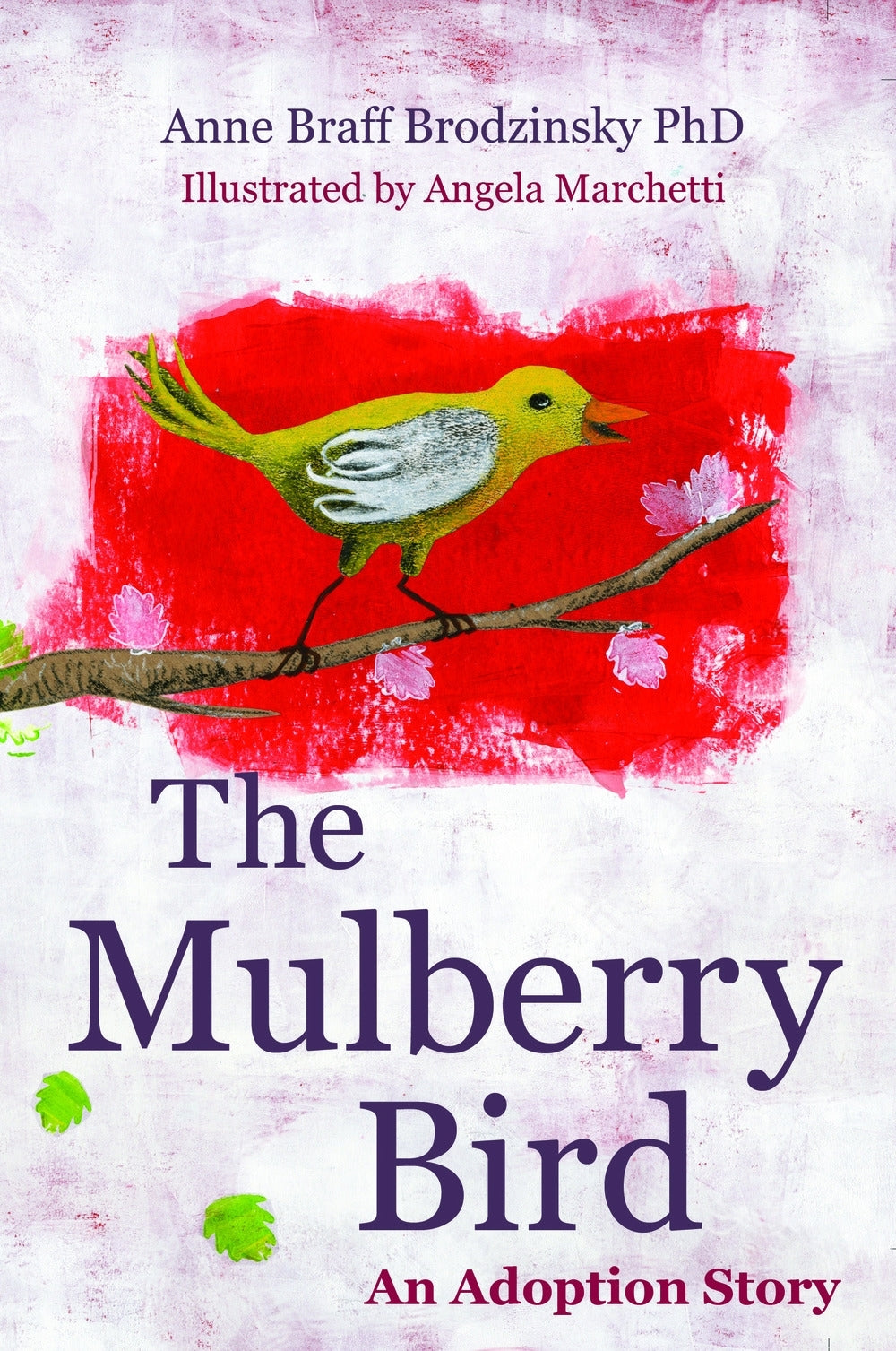
Press Reviews
Healthy Books
This tender and beautifully written story about a little bird, who must make the sad decision to give up her baby for adoption because she is too young to be able to look after it properly, is matched by equally tender and beautiful black and white chalk illustrations.
Dr. Joyce Maguire Pavao, Lecturer in Psychiatry, Harvard Medical School, CEO Pavao Consulting and Coaching, Cambridge and New York
So many children's books avoid, or gloss over, the story of how a child began, who they were before adoption, who their parent(s) were, and why adoption became part of their life. The Mulberry Bird has been one of the few books that poignantly and sensitively tells a real story, and clearly portrays the birth mother as loving and emotionally connected to her child. In this way, the book tells a story that is not about abandonment, but rather about how a birthmother, faced with what seemed insurmountable, became a loving, caring and uniquely responsible parent. I have 'prescribed' this book over the years, not only for adopted children, but also to help birthparents who are raising children born to them after the adoption. This edition is much more sensitively conveyed because of the magnificent art that evokes so much along with Anne's words. I will continue to 'prescribe' this book to many!
Deborah D. Gray MSW, MPA, Founder, Nurturing Attachments, and author of Attaching in Adoption and Nurturing Adoptions
Children need guidance in understanding adoption-related issues that include lack of birthparent resource, being part of one family and connected to another family, and decision-making in child welfare. Anne Brodzinsky's book helps me to explain these abstract ideas to children. The themes, as portrayed in the book, are easily grasped by children. This is a valuable book for therapists, caseworkers, or parents as they assist children in processing adoption information.
Debbie Riley LCMFT, CEO, Center for Adoption Support and Education (CASE), USA
A must have for adoptive parents and professionals. The Mulberry Bird is a classic adoption book which shapes a narrative for adopted children of all ages to understand the complexities of their personal adoption stories. It is a powerful resource to explore the underpinnings of the choices in adoption and helps to answer the resonating question in the minds of all adoptees, "Why was I adopted?" It is a story that can be retold over and over as children's developmental understanding of adoption broadens. It is one of our most valuable tools here at C.A.S.E.
Beth Hall, Director, PACT - An Adoption Alliance, USA
This gentle story shows the struggle of first parents with the decision to place their child for adoption and offers a reassuring answer to every adopted child's question, "Why is there adoption and why was I adopted?" This book should be on every adopted child's shelf. It is deep and real - a true classic.
Maryam Lane, Adoptive Parent, www.maryamlane.blogspot.co.uk
The Mulberry Bird is not only a wonderful tale but also a unique tool in the life story work of any adopted child. This heart-warming story explores the tale of adoption from the perspective of the Birth Parent, which makes it a thought-provoking and supportive book for many children. The Mother Bird's plight is portrayed sensitively and emotions are explored to help the reader understand the journey which she undertakes in making the decision for her baby to be adopted. Themes of love, anxiety, acceptance and the overwhelming desire for the best care for the baby bird run throughout the story - but what truly sets the book apart is the ability to present this in both a realistic and easily understandable manner for any child. I would highly recommend this book as a tool to be used in life story work and I look forward to reading this with my own adopted children.
Adam Pertman, Executive Director, Evan B. Donaldson Adoption Institute, and author of Adoption Nation: How the Adoption Revolution Is Transforming America
The Mulberry Bird is insightful, inspiring and important. Parents everywhere-and not just adoptive ones-should read it to their children (and to themselves!) for the enjoyment of a well-written book, but also to help them understand the complexity and value of this thing we call 'family.
